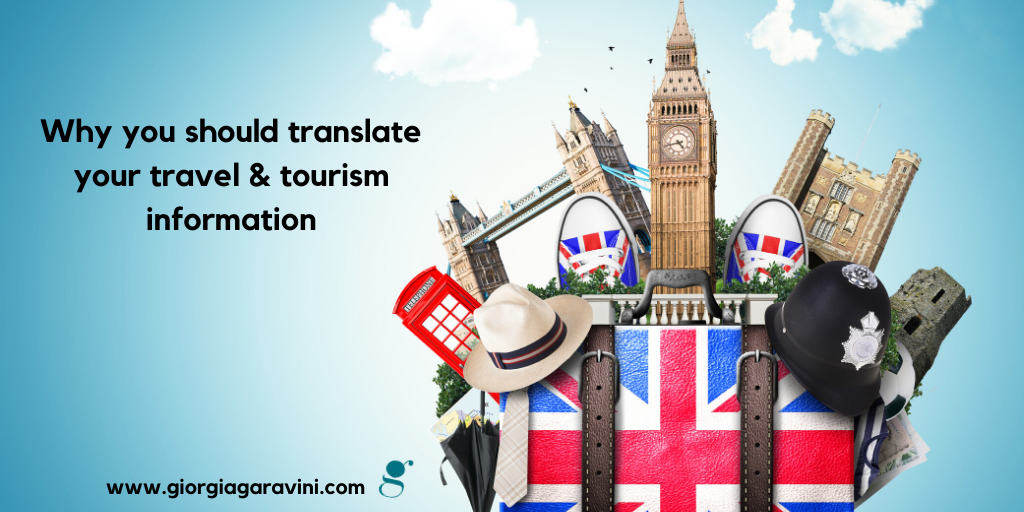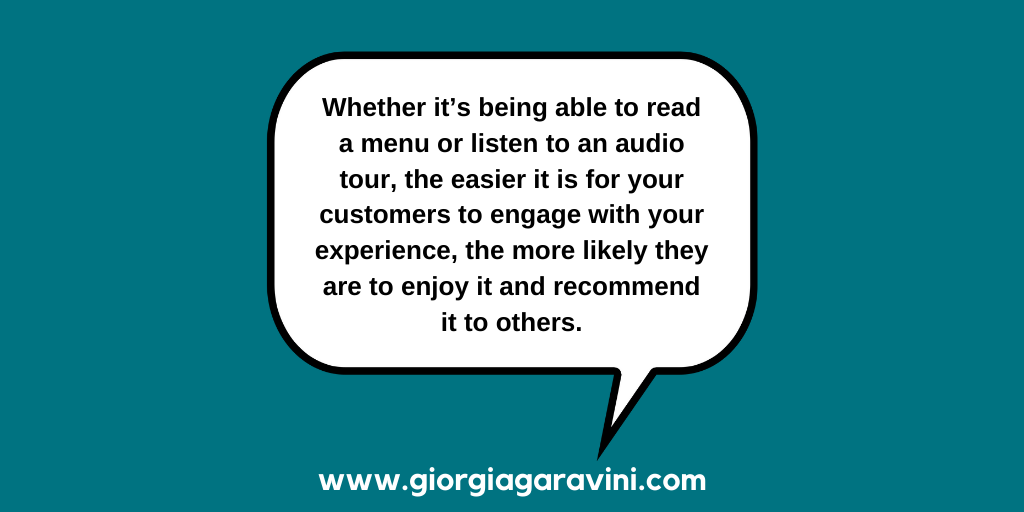The rise of the internet means companies now have the potential to connect with and attract a global audience. More people than ever book holidays, trips and tours online instead of going directly through travel agents. According to ISTAT, in 2018, 46% of Italians booked their trips online and only 6.6% booked through a travel agency.
Translating your website, marketing materials, tourist information and menus is vital if you want to entice customers from other countries, engage with them and ensure they enjoy their experience.
Whether your business is a hotel, restaurant, tour operator or museum, or if you’re putting on an event or food festival, translation has huge benefits for your business and your customers.
Why you should translate your travel & tourism information:
• It helps you grow your business
By translating your content into other languages, you can reach a wider audience and increase your profit. When you use the same terms and expressions as your target customers, they’re more likely to trust you and buy from you.
• It makes customers feel welcome
Translating your information helps customers feel included and shows you’ve thought about them.
• It helps customers enjoy the experience
To make sure you don’t lose out on sales, find out the most common languages your customers speak and cater for their needs.
As an example, at the last tourist attraction I visited in England, French and German translations were provided but they didn’t have the option to listen to the information in Italian. I speak English and French, but it's always easier to understand and more enjoyable to listen to a tour in your first language. If I’d have brought some family members with me that only speak Italian, they wouldn’t have been able to read or listen to anything.
• It’s helpful
By translating directions, you’ll ensure people don’t get lost. By translating departure times and pick-up points, you’re helping customers arrive on time and preventing delays to your schedule. By translating your menus, you’re helping customers understand what’s in their food and preventing allergic reactions.
What to consider when translating your travel and tourism information:
• Holidays are an emotional purchase
• The information needs to be localised
If you’ve used dialectal terms in your copy, remember they might not be understood everywhere.
• Automated translation systems aren’t reliable
Bad translations also look unprofessional and can affect your company’s reputation.
By using a professional translator, you can ensure your information is translated correctly, flows properly and is culturally sensitive.
As an Italian translator, I’ll adapt your travel and tourism materials from English into Italian, ensuring they’re clear, grab attention and resonate with an Italian audience.
Whether you want to put your lesser-known holiday spot on the map or increase footfall at your event, translating your marketing materials is the key to connecting with new audiences and growing your business.
Get in touch for a free quote today.

